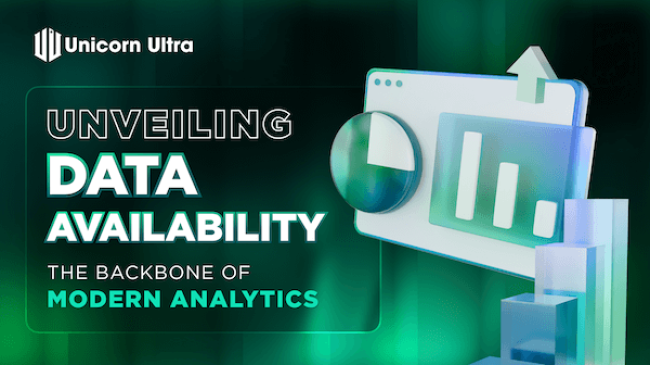Table of Contents
What is Data Availability?
Data availability is a measure of how frequently your data can be accessed, either by your organization or one of your partners. Having your data accessible around the clock, 24x7x365, is highly desirable as it allows your business to operate without interruptions. Given that unexpected issues and disruptions are inevitable in data management, designing a system capable of mitigating these challenges and consistently delivering data is paramount.

Data Availability-Associated Terminology
Several terms are closely related to data availability:
- Data Accessibility: The ease with which data can be accessed by authorized users. Accessibility ensures that data is within reach when needed for analysis or decision-making.
- Data Reliability: The trustworthiness and accuracy of data. Reliable data is free from errors or inconsistencies and can be depended upon for making critical decisions.
- Data Readiness: The state in which data is prepared and organized for analysis. Readiness involves data cleaning, transformation, and structuring to ensure it is fit for analytical processes.
Some Lingering Issues in Data Availability
Despite the importance of data availability, several challenges persist:
- Data Silos: Organizations often store data in isolated systems, leading to fragmentation and difficulty in accessing comprehensive datasets.
- Data Security: Ensuring data availability must also account for security measures to protect sensitive information from unauthorized access.
- Scalability: As data volumes continue to grow, ensuring its availability at scale becomes a significant challenge for organizations.
Why Is Data Availability Important?
The unavailability of data can have detrimental consequences for a business, depending on its offerings, reliance on specific data types, and how clients utilize that data. The repercussions of data being inaccessible or challenging to access can be severe.

Data availability holds a pivotal role in shaping an organization's reputation among its clients. For instance, if customers cannot access their online data, such as payment portals or purchase histories, frustration and a loss of trust are likely outcomes. Dissatisfied customers may seek out competitors who offer better service or experiences, resulting in a decline in market share and profits, especially in fiercely competitive industries.
In the absence of accurate, high-quality data, businesses are unable to capitalize on potential data-driven opportunities. Every minute of data unavailability translates to missed potential customers and a tarnished reputation, which can have substantial financial implications. Operational efficiency may also suffer as employees grapple with their tasks in the absence of accessible data.
Beyond financial losses, businesses face legal repercussions when data is unavailable. Organizations must adhere to compliance obligations, necessitating stringent security, storage, transfer, and data handling protocols. Notable examples include the General Data Protection Regulation (GDPR) and the Health Insurance Portability and Accountability Act (HIPAA). Businesses involved in handling card payments, sensitive customer data, or financial transactions must adhere to strict data regulations. Data unavailability can hinder an organization's ability to meet these legislative or legal requirements.
Inconsistent or absent data can escalate to life-threatening situations in certain industries. For instance, in healthcare, the unavailability or inaccessibility of accurate data can profoundly impact a patient's well-being and overall quality of life.
Data availability is a crucial consideration for application users. The more readily data is available within an application, the more user-friendly it becomes. Users also expect applications to synchronize seamlessly across various devices, a feat achievable only if data is easily accessible and transferable. Furthermore, users anticipate the ability to restore data from the cloud in the event of a lost or damaged device.
Business operations can grind to a halt if essential data cannot be accessed when needed, underscoring the paramount importance of prioritizing data availability for any business.
Potential Approaches to Ensure Data Availability
Addressing data availability challenges requires proactive strategies and technologies:

- Data Integration Platforms: Utilize data integration platforms to break down data silos, enabling seamless data flow between different systems.
- Data Redundancy: Implement data redundancy measures, such as data replication and backup systems, to ensure data availability even in the face of hardware failures or outages.
- Data Security Measures: Implement robust data security protocols, including encryption and access controls, to safeguard data while maintaining its availability.
- Cloud-Based Solutions: Consider cloud-based solutions that offer scalable storage and data management, ensuring availability as data volumes increase.
- Data Availability Monitoring: Employ data availability monitoring tools to track the status of data and identify potential issues in real time.
Conclusion
Data availability is the lifeblood of data analytics, research, and informed decision-making. Understanding its nuances and the related challenges is crucial for businesses and individuals alike. By embracing data integration, security measures, and modern technologies, organizations can ensure that their data remains available, reliable, and ready for analysis. In an era where data drives progress, ensuring its uninterrupted availability is paramount to success.
We hope that through this article by Unicorn Ultra, you have gained a better understanding of 'What is Data Availability?' and why it is of paramount importance. Thank you for joining us on this journey!






